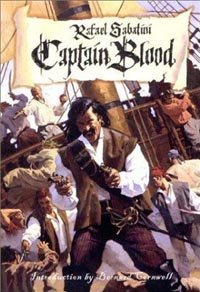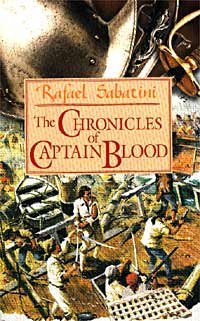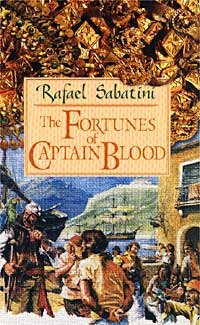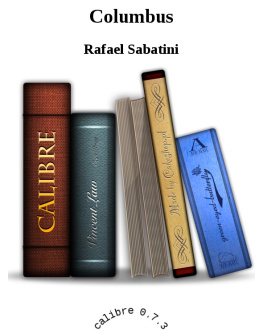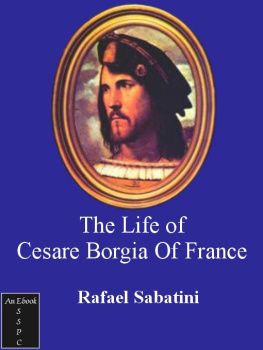Rafael Sabatini - Scaramouche
Here you can read online Rafael Sabatini - Scaramouche full text of the book (entire story) in english for free. Download pdf and epub, get meaning, cover and reviews about this ebook. year: 1999, genre: Adventure. Description of the work, (preface) as well as reviews are available. Best literature library LitArk.com created for fans of good reading and offers a wide selection of genres:
Romance novel
Science fiction
Adventure
Detective
Science
History
Home and family
Prose
Art
Politics
Computer
Non-fiction
Religion
Business
Children
Humor
Choose a favorite category and find really read worthwhile books. Enjoy immersion in the world of imagination, feel the emotions of the characters or learn something new for yourself, make an fascinating discovery.

- Book:Scaramouche
- Author:
- Genre:
- Year:1999
- Rating:5 / 5
- Favourites:Add to favourites
- Your mark:
- 100
- 1
- 2
- 3
- 4
- 5
Scaramouche: summary, description and annotation
We offer to read an annotation, description, summary or preface (depends on what the author of the book "Scaramouche" wrote himself). If you haven't found the necessary information about the book — write in the comments, we will try to find it.
Scaramouche — read online for free the complete book (whole text) full work
Below is the text of the book, divided by pages. System saving the place of the last page read, allows you to conveniently read the book "Scaramouche" online for free, without having to search again every time where you left off. Put a bookmark, and you can go to the page where you finished reading at any time.
Font size:
Interval:
Bookmark:
SCARAMOUCHE
A ROMANCE OF THE FRENCH REVOLUTION
By Rafael Sabatini
BOOK I: THE ROBE
CHAPTER I. THE REPUBLICAN
He was born with a gift of laughter and a sense that the world was mad. And that was all his patrimony. His very paternity was obscure, although the village of Gavrillac had long since dispelled the cloud of mystery that hung about it. Those simple Brittany folk were not so simple as to be deceived by a pretended relationship which did not even possess the virtue of originality. When a nobleman, for no apparent reason, announces himself the godfather of an infant fetched no man knew whence, and thereafter cares for the lad's rearing and education, the most unsophisticated of country folk perfectly understand the situation. And so the good people of Gavrillac permitted themselves no illusions on the score of the real relationship between Andre-Louis Moreauas the lad had been namedand Quintin de Kercadiou, Lord of Gavrillac, who dwelt in the big grey house that dominated from its eminence the village clustering below.
Andre-Louis had learnt his letters at the village school, lodged the while with old Rabouillet, the attorney, who in the capacity of fiscal intendant, looked after the affairs of M. de Kercadiou. Thereafter, at the age of fifteen, he had been packed off to Paris, to the Lycee of Louis Le Grand, to study the law which he was now returned to practise in conjunction with Rabouillet. All this at the charges of his godfather, M. de Kercadiou, who by placing him once more under the tutelage of Rabouillet would seem thereby quite clearly to be making provision for his future.
Andre-Louis, on his side, had made the most of his opportunities. You behold him at the age of four-and-twenty stuffed with learning enough to produce an intellectual indigestion in an ordinary mind. Out of his zestful study of Man, from Thucydides to the Encyclopaedists, from Seneca to Rousseau, he had confirmed into an unassailable conviction his earliest conscious impressions of the general insanity of his own species. Nor can I discover that anything in his eventful life ever afterwards caused him to waver in that opinion.
In body he was a slight wisp of a fellow, scarcely above middle height, with a lean, astute countenance, prominent of nose and cheek-bones, and with lank, black hair that reached almost to his shoulders. His mouth was long, thin-lipped, and humorous. He was only just redeemed from ugliness by the splendour of a pair of ever-questing, luminous eyes, so dark as to be almost black. Of the whimsical quality of his mind and his rare gift of graceful expression, his writingsunfortunately but too scantyand particularly his Confessions, afford us very ample evidence. Of his gift of oratory he was hardly conscious yet, although he had already achieved a certain fame for it in the Literary Chamber of Rennesone of those clubs by now ubiquitous in the land, in which the intellectual youth of France foregathered to study and discuss the new philosophies that were permeating social life. But the fame he had acquired there was hardly enviable. He was too impish, too caustic, too much disposedso thought his colleaguesto ridicule their sublime theories for the regeneration of mankind. Himself he protested that he merely held them up to the mirror of truth, and that it was not his fault if when reflected there they looked ridiculous.
All that he achieved by this was to exasperate; and his expulsion from a society grown mistrustful of him must already have followed but for his friend, Philippe de Vilmorin, a divinity student of Rennes, who, himself, was one of the most popular members of the Literary Chamber.
Coming to Gavrillac on a November morning, laden with news of the political storms which were then gathering over France, Philippe found in that sleepy Breton village matter to quicken his already lively indignation. A peasant of Gavrillac, named Mabey, had been shot dead that morning in the woods of Meupont, across the river, by a gamekeeper of the Marquis de La Tour d'Azyr. The unfortunate fellow had been caught in the act of taking a pheasant from a snare, and the gamekeeper had acted under explicit orders from his master.
Infuriated by an act of tyranny so absolute and merciless, M. de Vilmorin proposed to lay the matter before M. de Kercadiou. Mabey was a vassal of Gavrillac, and Vilmorin hoped to move the Lord of Gavrillac to demand at least some measure of reparation for the widow and the three orphans which that brutal deed had made.
But because Andre-Louis was Philippe's dearest friendindeed, his almost brotherthe young seminarist sought him out in the first instance. He found him at breakfast alone in the long, low-ceilinged, white-panelled dining-room at Rabouillet'sthe only home that Andre-Louis had ever knownand after embracing him, deafened him with his denunciation of M. de La Tour d'Azyr.
"I have heard of it already," said Andre-Louis.
"You speak as if the thing had not surprised you," his friend reproached him.
"Nothing beastly can surprise me when done by a beast. And La Tour d'Azyr is a beast, as all the world knows. The more fool Mabey for stealing his pheasants. He should have stolen somebody else's."
"Is that all you have to say about it?"
"What more is there to say? I've a practical mind, I hope."
"What more there is to say I propose to say to your godfather, M. de Kercadiou. I shall appeal to him for justice."
"Against M. de La Tour d'Azyr?" Andre-Louis raised his eyebrows.
"Why not?"
"My dear ingenuous Philippe, dog doesn't eat dog."
"You are unjust to your godfather. He is a humane man."
"Oh, as humane as you please. But this isn't a question of humanity. It's a question of game-laws."
M. de Vilmorin tossed his long arms to Heaven in disgust. He was a tall, slender young gentleman, a year or two younger than Andre-Louis. He was very soberly dressed in black, as became a seminarist, with white bands at wrists and throat and silver buckles to his shoes. His neatly clubbed brown hair was innocent of powder.
"You talk like a lawyer," he exploded.
"Naturally. But don't waste anger on me on that account. Tell me what you want me to do."
"I want you to come to M. de Kercadiou with me, and to use your influence to obtain justice. I suppose I am asking too much."
"My dear Philippe, I exist to serve you. I warn you that it is a futile quest; but give me leave to finish my breakfast, and I am at your orders."
M. de Vilmorin dropped into a winged armchair by the well-swept hearth, on which a piled-up fire of pine logs was burning cheerily. And whilst he waited now he gave his friend the latest news of the events in Rennes. Young, ardent, enthusiastic, and inspired by Utopian ideals, he passionately denounced the rebellious attitude of the privileged.
Andre-Louis, already fully aware of the trend of feeling in the ranks of an order in whose deliberations he took part as the representative of a nobleman, was not at all surprised by what he heard. M. de Vilmorin found it exasperating that his friend should apparently decline to share his own indignation.
"Don't you see what it means?" he cried. "The nobles, by disobeying the King, are striking at the very foundations of the throne. Don't they perceive that their very existence depends upon it; that if the throne falls over, it is they who stand nearest to it who will be crushed? Don't they see that?"
"Evidently not. They are just governing classes, and I never heard of governing classes that had eyes for anything but their own profit."
"That is our grievance. That is what we are going to change."
"You are going to abolish governing classes? An interesting experiment. I believe it was the original plan of creation, and it might have succeeded but for Cain."
Font size:
Interval:
Bookmark:
Similar books «Scaramouche»
Look at similar books to Scaramouche. We have selected literature similar in name and meaning in the hope of providing readers with more options to find new, interesting, not yet read works.
Discussion, reviews of the book Scaramouche and just readers' own opinions. Leave your comments, write what you think about the work, its meaning or the main characters. Specify what exactly you liked and what you didn't like, and why you think so.

